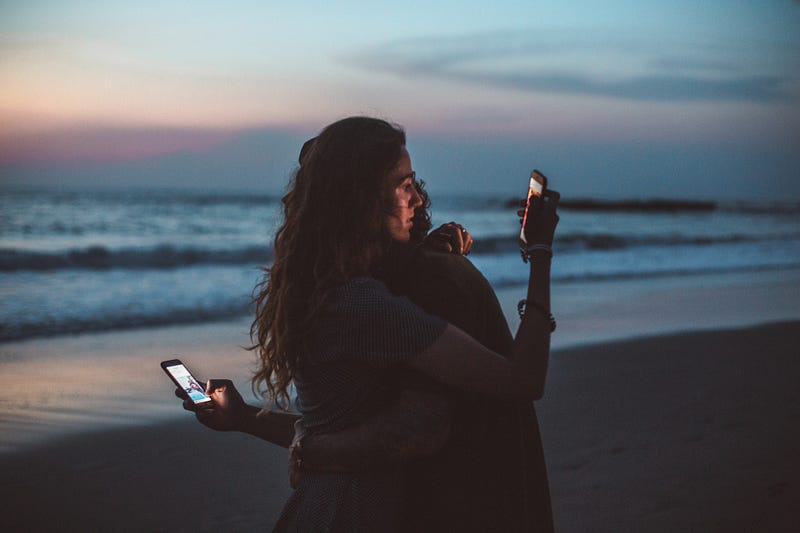# The Illusion of Social Acceptance: Navigating the Digital Landscape
Written on
Chapter 1: The Social Media Phenomenon
Reflecting on my childhood, I remember how, at around 12 years old, my classmates buzzed about Facebook. Back then, having a Facebook account was a marker of status. Naturally, everyone wanted to belong, and it seemed like a rite of passage to create a profile.
I often wondered how my friends managed to sign up at such a young age. Perhaps their parents set up email accounts for them, or older siblings helped. Luckily, my mother created an email for me, solely for that purpose, and my early tech-savviness allowed me to establish my own Facebook presence.
In a bid to impress my peers, my inaugural post featured a lavish mansion and a flashy car—images I had simply downloaded from Google. Looking back, I chuckle at my naiveté, but I was just a kid wanting to fit in.
This marked the beginning of what I term the emergence of "social zombies."
What Fuels the Rise of Social Zombies?
Over the years, social media has evolved into one of the most significant inventions since the internet, offering both remarkable benefits and notable drawbacks.
Social media users enjoy its perks, yet they also bear the consequences of their online presence. Personally, I believe that social media can be a powerful tool, provided it is utilized wisely.
The freedom to post whatever comes to mind has led to the phenomenon I refer to as social zombies. But what exactly do I mean by this term?
Humans are inherently social beings, driven by the desire for acceptance. This urge stems from the gratification that arises from being regarded as admirable or "cool" by others. However, this quest for validation can drive individuals to extreme lengths, often resulting in stress and anxiety, particularly among the youth.
When you scroll through platforms like Instagram, the predominant imagery showcases others' glamorous moments—luxurious cars, exotic vacations, high-end fashion—all presenting a facade of happiness and opulence. After all, who would choose to share their struggles on social media?
While some may find inspiration in these portrayals, others may fall into despair, comparing their lives unfavorably to the seemingly perfect ones they observe online.
The notion of being a social zombie arises when individuals feel compelled to boost their "social dopamine" by posting content in hopes of receiving likes, followers, and comments, or by emulating someone they admire from media.
What many fail to realize is that the curated lives they see online often mask deeper issues, with the glitzy exterior concealing pain and deception. Not everyone fabricates their online persona, but it is crucial to discern reality from illusion. Blindly accepting everything seen online can lead to significant emotional harm.
The Behavior of Social Zombies
Regardless of age, it's likely you've encountered someone who is willing to spend extravagantly to appear impressive on social media, even if it strains their finances. Individuals are entitled to make their own spending choices, but likening them to zombies serves to highlight the concerning dynamics at play.
In popular culture, zombies often start as ordinary people but transform into mindless creatures after an encounter with another zombie. Similarly, many individuals become puppets of their own desires, driven by the need for social validation.
The pressure to replicate the lifestyles portrayed online can lead the younger generation to make detrimental choices, ultimately resulting in larger issues.
Reflections on Acceptance
While it’s natural to seek acceptance—whether through material possessions or other talents—problems arise when individuals relentlessly compare themselves to others. This can lead to feelings of inadequacy, especially when the lives they envy may not even be genuine.
Acceptance itself is not inherently negative; it can motivate people to strive for their goals. However, when individuals compromise their well-being to attain a lifestyle that may not be realistic, they risk making poor decisions that have long-lasting repercussions.
Ultimately, it is vital for individuals to remain authentic and true to their purpose. Social media should not dictate how one lives their life. It is essential to remember that not everything portrayed online is accurate.
I welcome your thoughts and encourage discussion, as this article reflects my personal perspective rather than absolute truths.
Thank you for reading, and if you enjoyed this discussion, consider following for more insights on technology and life lessons.
If you're interested in maximizing your Medium experience, feel free to become a member [HERE](#). Your support aids not only me but countless writers on the platform.
Thanks,
Abraham
